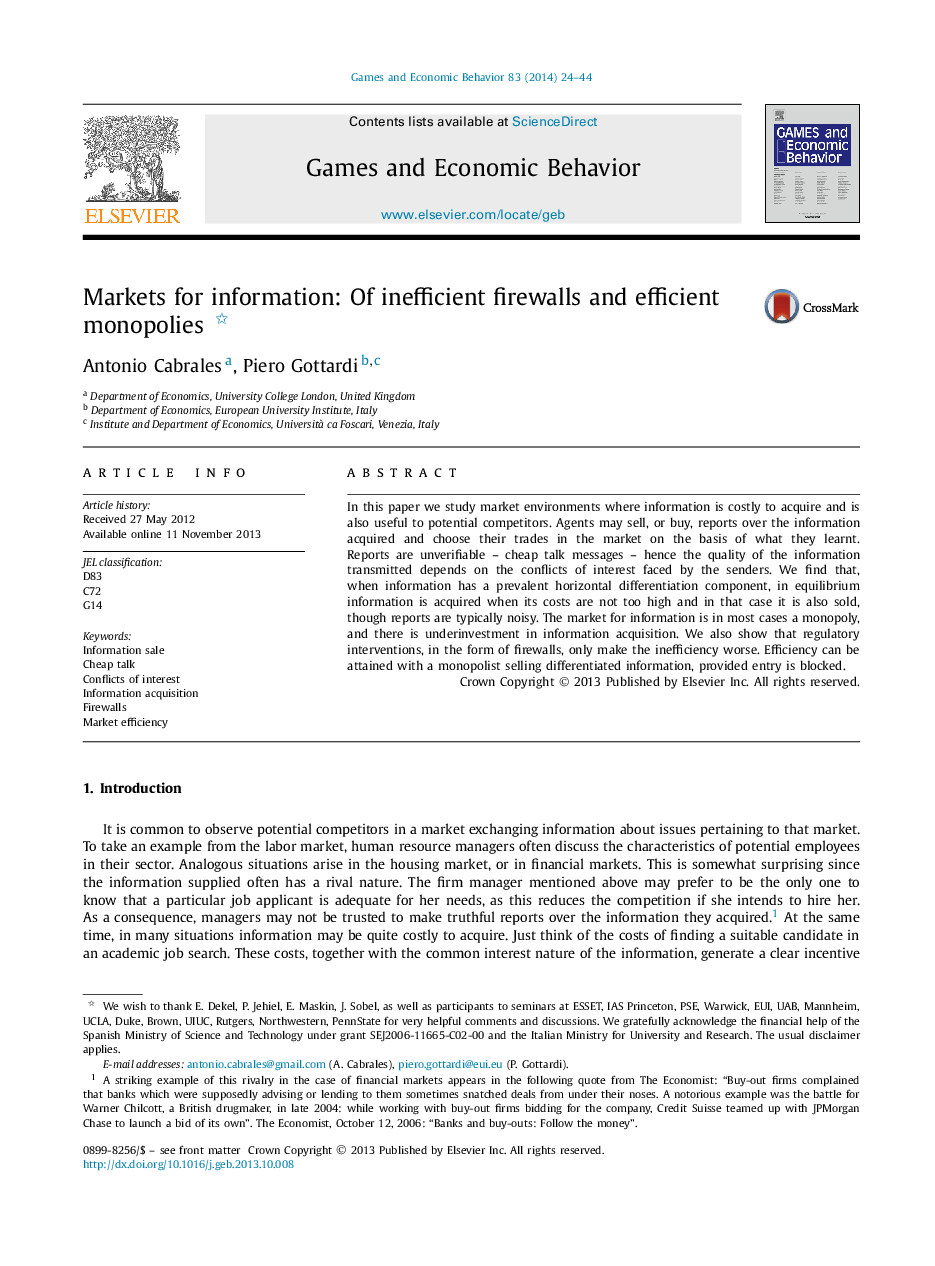| Article ID | Journal | Published Year | Pages | File Type |
|---|---|---|---|---|
| 5071891 | Games and Economic Behavior | 2014 | 21 Pages |
â¢We study markets where information is costly to acquire and partially rival.â¢In equilibrium information is acquired and unverifiable reports over it are sold.â¢Information is a monopoly; there is underinvestment in information acquisition.â¢Limiting info sale to agents uninterested in object worsens the inefficiency.â¢Efficiency can be attained with a monopolist selling differentiated information.
In this paper we study market environments where information is costly to acquire and is also useful to potential competitors. Agents may sell, or buy, reports over the information acquired and choose their trades in the market on the basis of what they learnt. Reports are unverifiable - cheap talk messages - hence the quality of the information transmitted depends on the conflicts of interest faced by the senders. We find that, when information has a prevalent horizontal differentiation component, in equilibrium information is acquired when its costs are not too high and in that case it is also sold, though reports are typically noisy. The market for information is in most cases a monopoly, and there is underinvestment in information acquisition. We also show that regulatory interventions, in the form of firewalls, only make the inefficiency worse. Efficiency can be attained with a monopolist selling differentiated information, provided entry is blocked.
